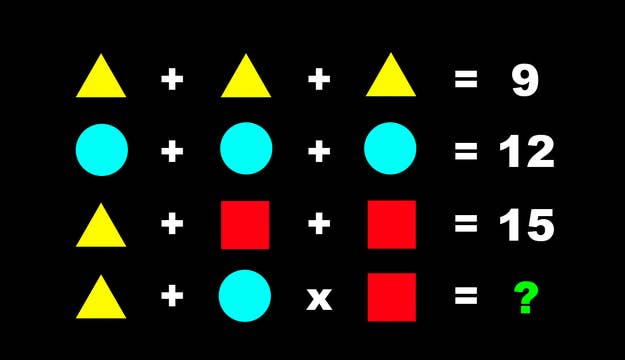IQ tests have fascinated people for decades, offering insights into the intricate workings of the human mind. These assessments measure a range of cognitive abilities, and the questions they contain are designed to challenge various aspects of intelligence.
Understanding IQ Tests and Their Multifaceted Purpose
IQ tests are not just about getting a score; they are tools that help understand the various facets of human intelligence. They measure logical reasoning, mathematical skills, language abilities, spatial visualization, and memory. Each section of an IQ test is crafted to challenge a specific cognitive domain, providing a comprehensive overview of an individual’s mental strengths.
Types of Questions Commonly Found on IQ Tests
Logical reasoning questions that test problem-solving skills
Logical reasoning is at the heart of many IQ tests. These questions require critical thinking and solving problems using logic rather than prior knowledge. They often present a series of shapes or numbers and ask you to identify the pattern or rule that governs them. For example, you might be asked to find the next number in a sequence like 2, 4, 8, 16, where recognizing the pattern of doubling is key.
- Recognizing patterns in sequences
- Solving analogies and syllogisms
- Deductive reasoning puzzles
Mathematical problems that evaluate quantitative aptitude
Mathematical sections test your ability to work with numbers and understand mathematical concepts quickly. These problems can range from basic arithmetic to more complex algebraic equations. Quick mental calculations and a strong grasp of mathematical principles are essential here.
- Arithmetic calculations
- Algebraic equations
- Geometry and spatial calculations
Verbal comprehension questions assessing language proficiency
In the verbal sections, your understanding and command of language are tested. This might involve identifying synonyms and antonyms, completing analogies, or comprehending and interpreting passages of text. Such questions assess your ability to process and analyze verbal information efficiently.
- Vocabulary tests
- Reading comprehension
- Sentence completion
Spatial awareness and visual puzzles testing mental manipulation
Spatial reasoning is about how well you can visualize and manipulate objects in your mind. Questions might include 3D figures that need to be mentally rotated or unfolded. This tests your visual-spatial intelligence, which is crucial in fields like architecture and engineering.
- Mental rotation of objects
- Pattern recognition
- Visual assembly puzzles
Memory and recall tasks measuring short-term memory capacity
Memory tasks often involve remembering sequences of numbers, letters, or images. After a brief period of viewing, you must recall and reproduce the sequence accurately. This assesses your short-term memory and ability to retain and retrieve information under pressure.
- Sequence recall
- Pattern memorization
- Information retrieval
Summary of Question Types and Skills Tested
| Question Type | Skills Tested |
|---|---|
| Logical Reasoning | Analytical and deductive abilities |
| Mathematical Problems | Numerical and quantitative aptitude |
| Verbal Comprehension | Language proficiency and vocabulary |
| Spatial Awareness | Visualization and mental manipulation |
| Memory and Recall | Short-term memory capacity |
Preparing for IQ Tests by Enhancing Cognitive Skills
As someone passionate about mathematics and logic, engaging with puzzles and brain teasers can sharpen cognitive abilities. Regular practice with different types of problems enhances mental agility and prepares you for the diversity of questions on an IQ test.
To put your skills to the test, try the comprehensive 20-question online IQ test available at iq-tester.net. It’s a great way to experience a variety of IQ test questions and see how you stack up.
Conclusion: Embracing the Challenge of IQ Test Questions
IQ tests offer a fascinating insight into the workings of the human mind. By familiarizing yourself with the types of questions and engaging in regular mental exercises, you can improve your performance and enjoy the process of learning and self-discovery. Embrace the challenge, and let your passion for mathematics and logic guide you through the intriguing world of IQ testing.




